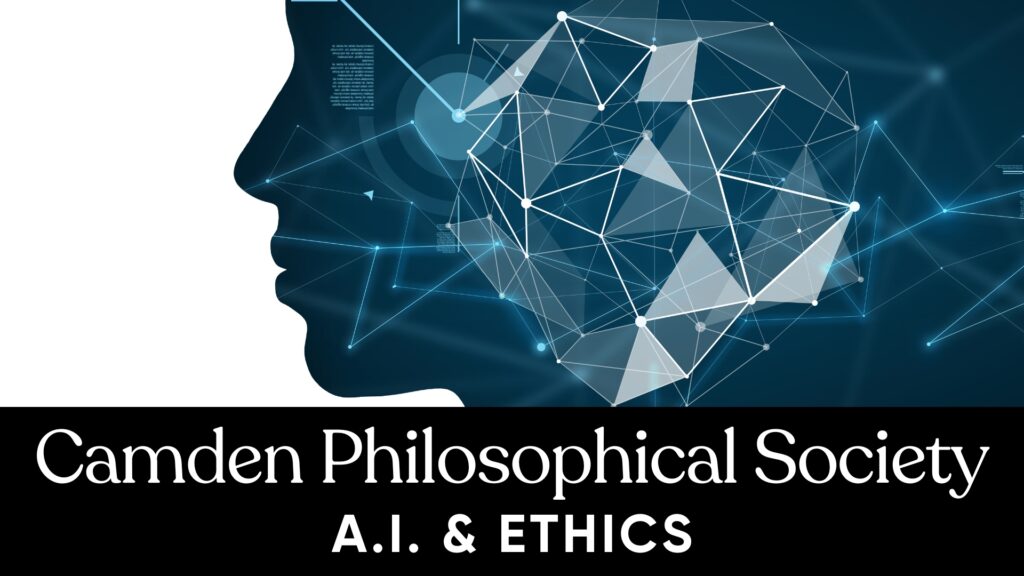Site Navigation Menu

The Camden Philosophical Society will meet on Tuesday, November 19, 3:30 – 5:30 p.m. EDT in the Picker Room of the Camden Public Library. All are welcome to participate, in-person at the Picker Room of the Camden Public Library or by Zoom. That goes for visitors, as well as year-rounders in Maine, and friends of the society wherever you may be.
If you wish to participate via Zoom, please email sarahmiller@usa.net. You will receive a Zoom invitation on the morning of the meeting. Click on the “Join Zoom Meeting” link in that invitation at the time of the event.
Technology has given humanity the power to radically alter or end its existence as a naturally occurring lifeform, to drive most other animals and plants into extinction, and to destabilize the Earth’s climate and planetary operations. What does this power — whether affected through artificial intelligence (AI), climate alteration, nuclear power, or other technologies — mean for centuries of ethical thinking that was focused narrowly on personal relationships in the here and now?

To round out its series of philosophical discussions on AI, the Camden Philosophical Society will in November explore this momentous question, first posed in much those words by late 20th Century German/American philosopher Hans Jonas in An Imperative of Responsibility: In Search of an Ethics for the Technological Age.
The specific reading that will guide the discussion forms the first chapter of that book and was published separately as an article entitled “Technology and Responsibility: Reflections on the New Tasks of Ethics.”
In the reading, Jonas starts with the proposition that “modern technology has turned into an infinite forward thrust of the [human] race… whose success [at achieving] maximal control over things and himself appears as the consummation of his destiny.”
Arguably foreshadowing the rise of the prestige and stock-market value of giant US tech companies, he notes that modern technology not only creates through its success a positive, self-reinforcing feedback loop, it starves “whatever else belongs to the fullness of man.” It has “obliterated” the distinction between artificial and natural and between nature and mechanical creations of man.
Instead of looking back at humanity’s frequent assumption that it holds rights over non-human creatures and even the Earth itself — “dominion” in Anglophone Christian terminology – Jonas contends that our technological power has given us novel responsibilities to protect the non-human world. Has “the biosphere as a whole and in its parts, now subject to our power … become a human trust [that] has something of a moral claim on us not only for our ulterior sake but for its own and in its own right?”
These issues are raised within the context of specific technological advances, including the potential that humanity will learn to indefinitely extend individual human lives and to alter human behavior and learning capacity to benefit social aims, rather than individual desires.
Another aspect of the “new ethics of responsibility for and to a distant future” that Jonas flags is “the doubt it casts on the capacity of representative government, operating by its normal principals and procedures, to meet the new demands.”
The reading can be found online here: https://inters.org/jonas-technology-responsability Alternatively, you can read Chapter 1 of The Imperative of Responsibility, entitled “The Altered Nature of Human Responsibility.” If reading time is short, Section IV, “Earlier Forms of Future Oriented Ethics,” can be skipped, as it will probably not be central to the discussion.